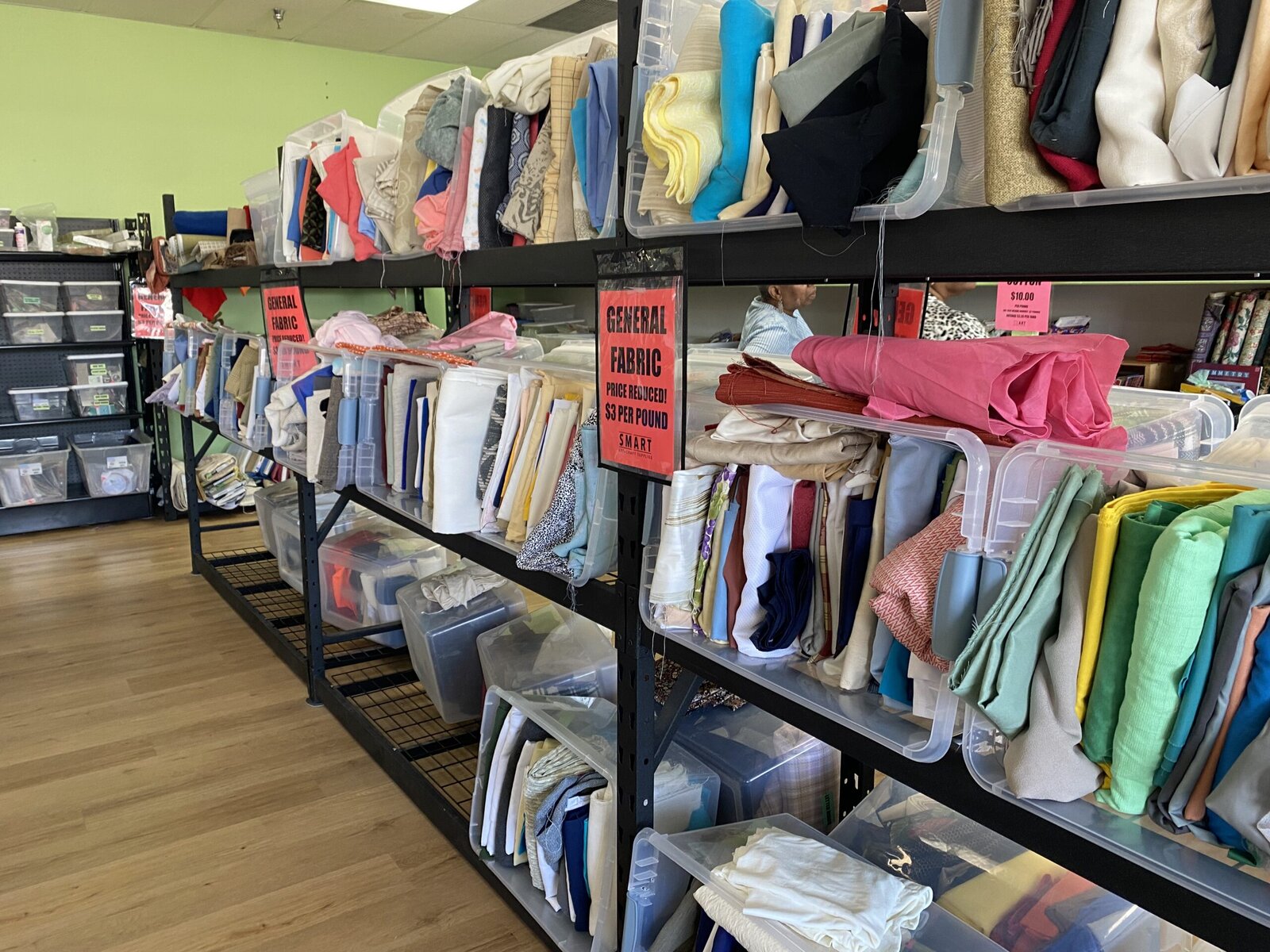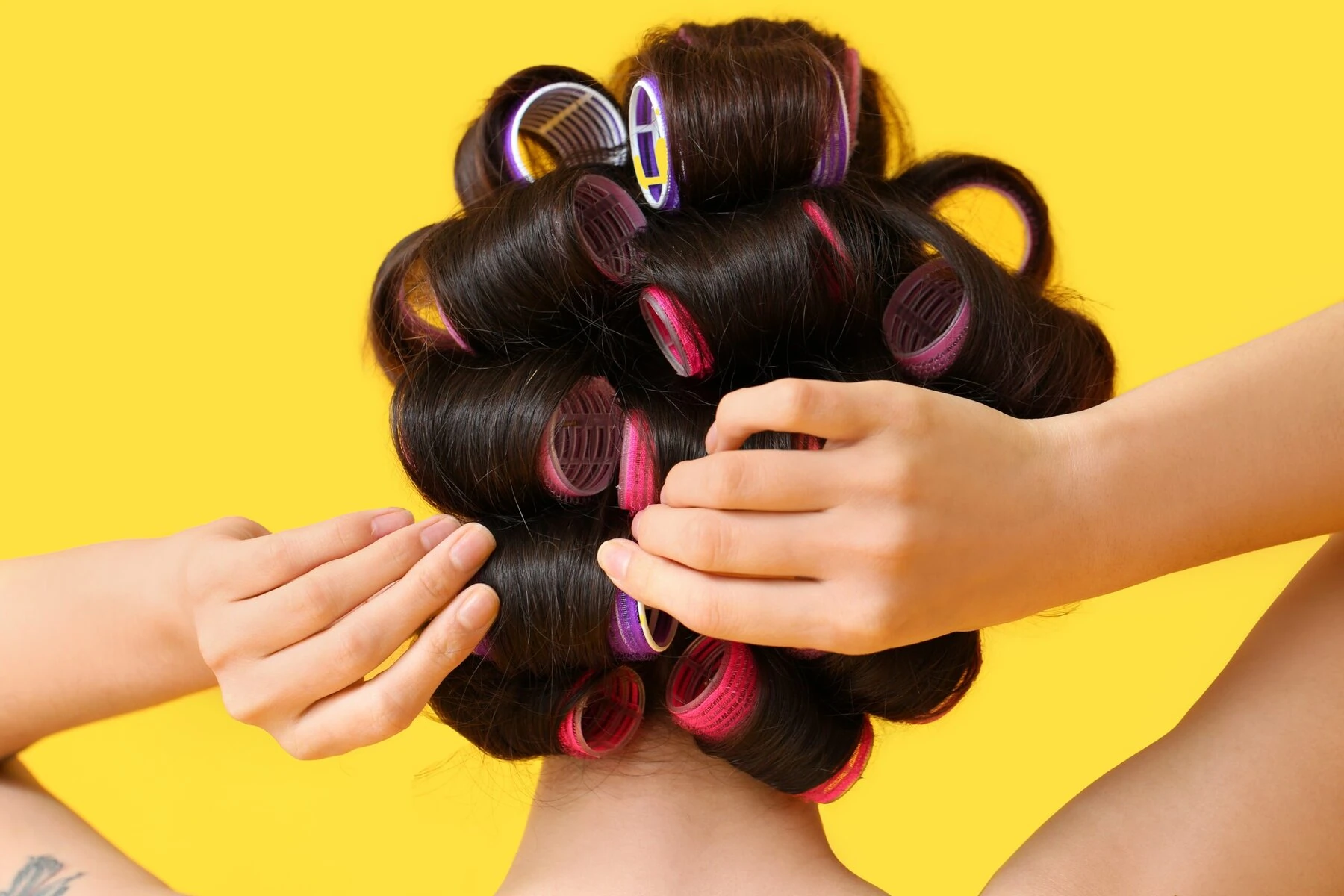This story was originally published by Montana Free Press at montanafreepress.org.
When Megan Dobbs began planning how she wanted her upcoming birth to go, two goals rose to the top of her list. She wanted to be fully present and remember every moment. And she didn’t want anything to compromise her sobriety.
Dobbs, 30, has a wide smile and is quick to cry, especially when she talks about motherhood and her prolonged battle with addiction. Years ago, she agreed to terminate her parental rights to her firstborn daughter after a period of drug use she couldn’t kick. Her second child lives in Florida, the state Dobbs left behind last November as part of her journey to sobriety. She had family in Montana and had heard about health services here for pregnant people struggling with addiction. The day she boarded the plane, she told herself, was a step toward becoming the mother she knew she could be.
“The moment I found out I was pregnant again, I was ready to get clean,” Dobbs said in a September interview. “I was done with it.”
Soon after she arrived in Lewistown, seven months pregnant, Dobbs became one of the first patients in an upstart health program taking root in parts of rural Montana. She was connected with a “recovery doula”-in-training — a certified peer with their own history of addiction learning to become a birth doula — to support her through her pregnancy. If all went according to plan, that support worker would help Dobbs and her baby come through the experience healthy, sober and together.
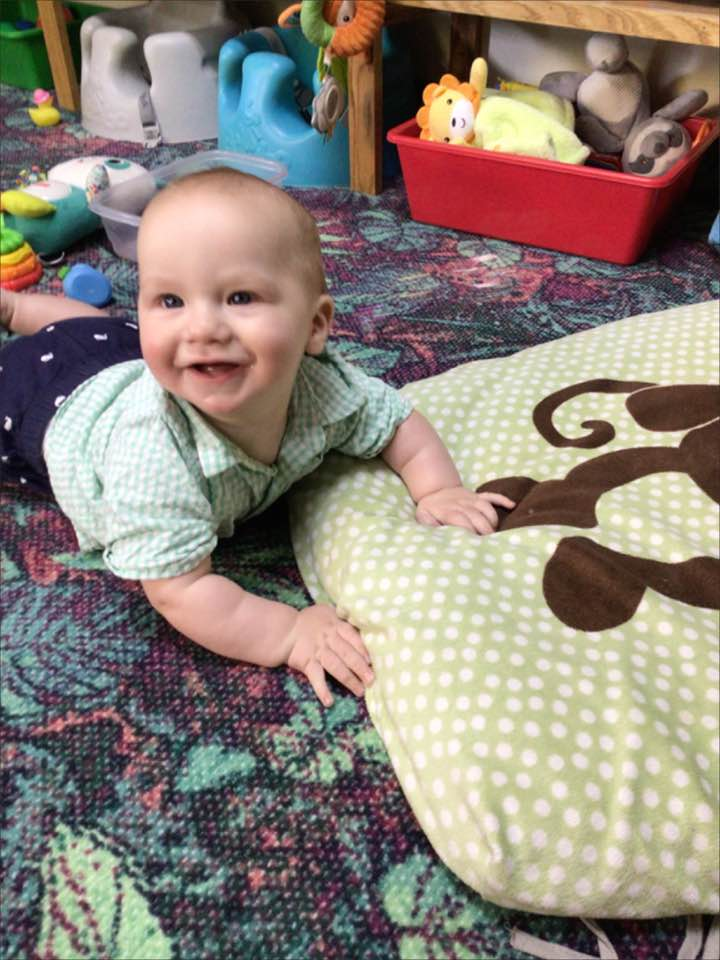
A year later, Dobbs’ goals have become reality. Her son, Riyadh, is nearly 10 months old and already able to mirror his mother’s smile. She accepts credit for all that she and her son have achieved, but says that progress wouldn’t have been possible without the help she found in Lewistown.
“People can change. I’ve changed,” Dobbs said. “It’s literally, I cannot stress enough, the reason that my recovery is working, is because of my support group.”
Sitting on the same side of the table
The idea to train recovery doulas in Montana partially grew out of one of Megkian Doyle’s closely held beliefs: that one generation can chart a path out of generational cycles of substance use disorder.
Doyle is the director of the Regional Community Action Team at One Health, a network of health care clinics spanning much of rural Montana. In October, the recovery doula program Doyle dreamed up celebrated its first three graduates and started training another cohort, with members hailing from small towns — Chinook, Sidney, Hardin — across Montana’s north, east and southeast regions.
“I wholeheartedly believe that it only takes a generation,” Doyle said of breaking the cycle of addiction. She described her own mom, who grew up with parents who used drugs and worked hard to tread a new path for herself and Doyle. “It only took her to change the direction.”
But such turnabouts can be immensely difficult, Doyle said, especially for people who are pregnant or parenting and afraid to reach out for help. Many people fear that confessing to drug use or mental health struggles could trigger investigations by law enforcement and child protection agencies, possibly leading to their children being removed and placed in foster care.
Weighed down by negative news?
Our smart, bright, weekly newsletter is the uplift you’ve been looking for.“People are trying to stay off the radar as much as they can,” Doyle said. In an ideal world, she continued, patients would be willing and able to access prenatal and postpartum health care, no matter what they’re dealing with. “We really want to give them support.”
Drugs, alcohol and mental illness pose significant risks to maternal and early childhood health. Nationwide and in Montana, overdose and suicide are among the leading underlying causes of pregnancy-related deaths, a category that includes maternal deaths during pregnancy and up to a year postpartum. The same factors often play a role in children being placed in Montana’s foster care system, with parental drug use being noted in at least 30 percent of removals, according to state data compiled in 2021.
The One Health program, a state and federal grant recipient, tries to prevent those outcomes by combining two types of health professionals, doulas and peer support specialists, trained to help pregnant patients and those dealing with mental health and addiction issues.
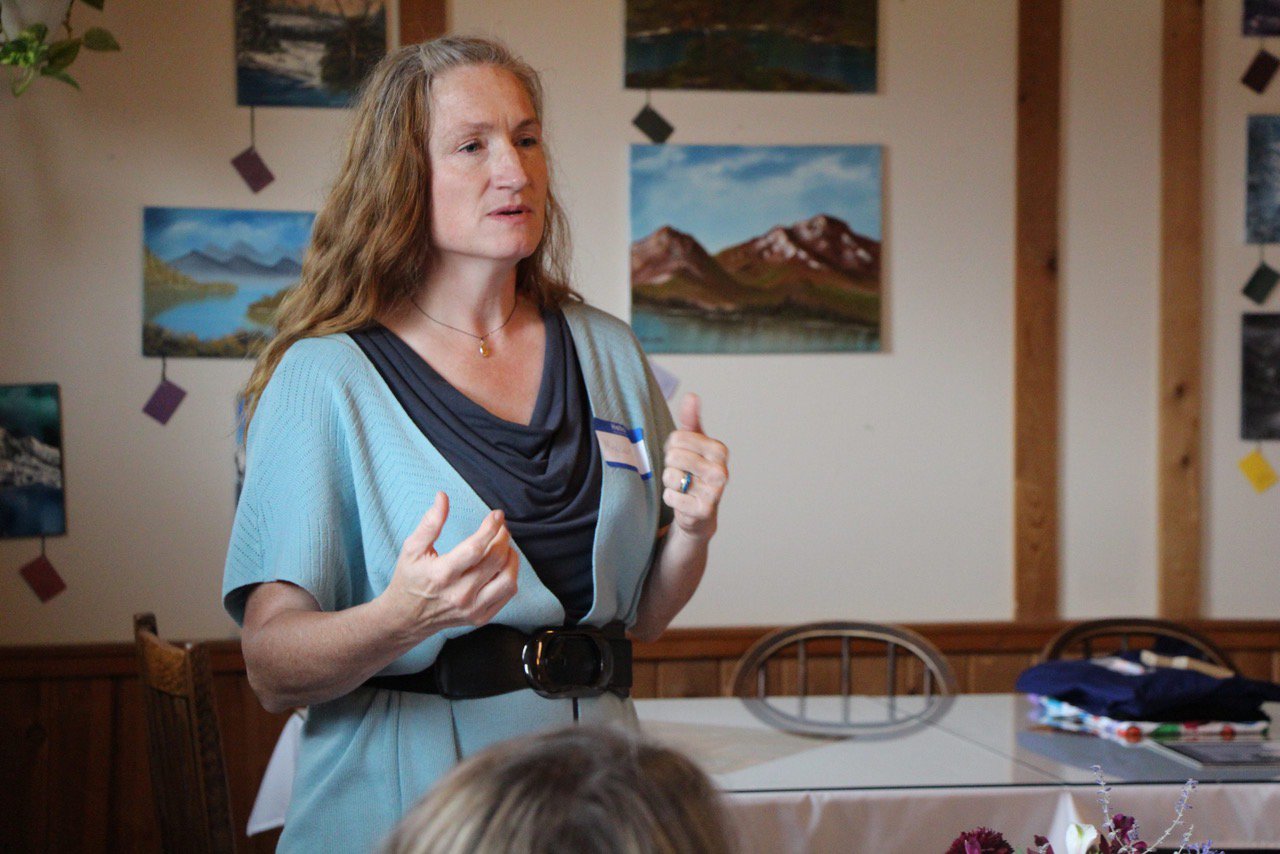
Merging the specialties is strategic in a few ways, Doyle said. Doulas, as non-medical support workers, are rarely covered by insurance or Medicaid, which often makes their services inaccessible to low-income or uninsured households. Peer support specialists, on the other hand, can be covered by insurance, but aren’t trained in the specific skills that can help someone who’s pregnant, giving birth and navigating weeks and months of postpartum challenges. By combining the two skill sets, Doyle and her team reasoned, dually trained staff can fill gaps in the continuum of care available to some of Montana’s most vulnerable patients.
“My job as a peer support [specialist] is to be on their same side of the table,” said Carson Zeigler, a recovery doula-in-training based in Billings. “So I’m going to sit there with them and I’m going to help them fill out that Medicaid form, that SNAP form. I’m going to make those phone calls with them, not for them.”
Zeigler said her work, which sometimes looks like being a “paid friend,” is about empowering patients and helping them connect to services designed to help them succeed. That type of support wasn’t available during her own first high-risk pregnancy, Zeigler said, even though her medical team knew she was young and had a history of addiction. After the birth of her second child, Zeigler subsequently experienced two miscarriages and again felt stranded without emotional help. She began experiencing postpartum depression, something she didn’t know was possible after a pregnancy loss, and tried to take her own life.
Zeigler said her personal experiences with pregnancy, parenthood, addiction and mental health crises made her want to help others who might be struggling. She’s now a certified peer support specialist-in-training to become a recovery doula. Even if she doesn’t have the exact same experience as her clients, Zeigler said, her past can help her relate.
“For me, it is very important to share what I’ve gone through,” she said. “I get it. I’ve been there.”
‘Because of my support group’
While pregnancy and the postpartum period are highly vulnerable times for patients, One Health clinical supervisor Pam Ponich describes them as “a clinical window of opportunity” where patients are more likely to seek and use help.
“They really do realize, well, it’s not just about me. There’s this other life and I want to be the best parent I can be,” Ponich said.
But services have to be available for that motivation to become action, Ponich said. That symbiosis between patients and health care providers ended up happening for Dobbs, the Florida resident who came to Montana to be closer to family and tap into prenatal services.
When she arrived in Lewistown, Dobbs found a network of services that began to kick into gear. She was put in touch with Chelsea Solberg, a One Health nurse and care coordinator with the Meadowlark Initiative, a statewide program to help providers address behavioral health risks during pregnancy and decrease family separations for drug use or mental health issues. Solberg connected her with a recovery doula-in-training, another Lewistown resident and peer support specialist named Ty LaFountain. Together, Solberg and LaFountain became pillars of Dobbs’ support team as she worked through the early phases of sobriety and began preparing for her son’s birth.
As a nurse specializing in labor, delivery and infant care, Solberg said, she saw Dobbs as another expecting parent who needed support — not a person solely defined by her history of addiction.
“She’s a mom, just like I am,” Solberg said in an October interview. “That’s Megan, the person … I know that that support around anyone is important for preparing to give birth, no matter what their struggles are.”
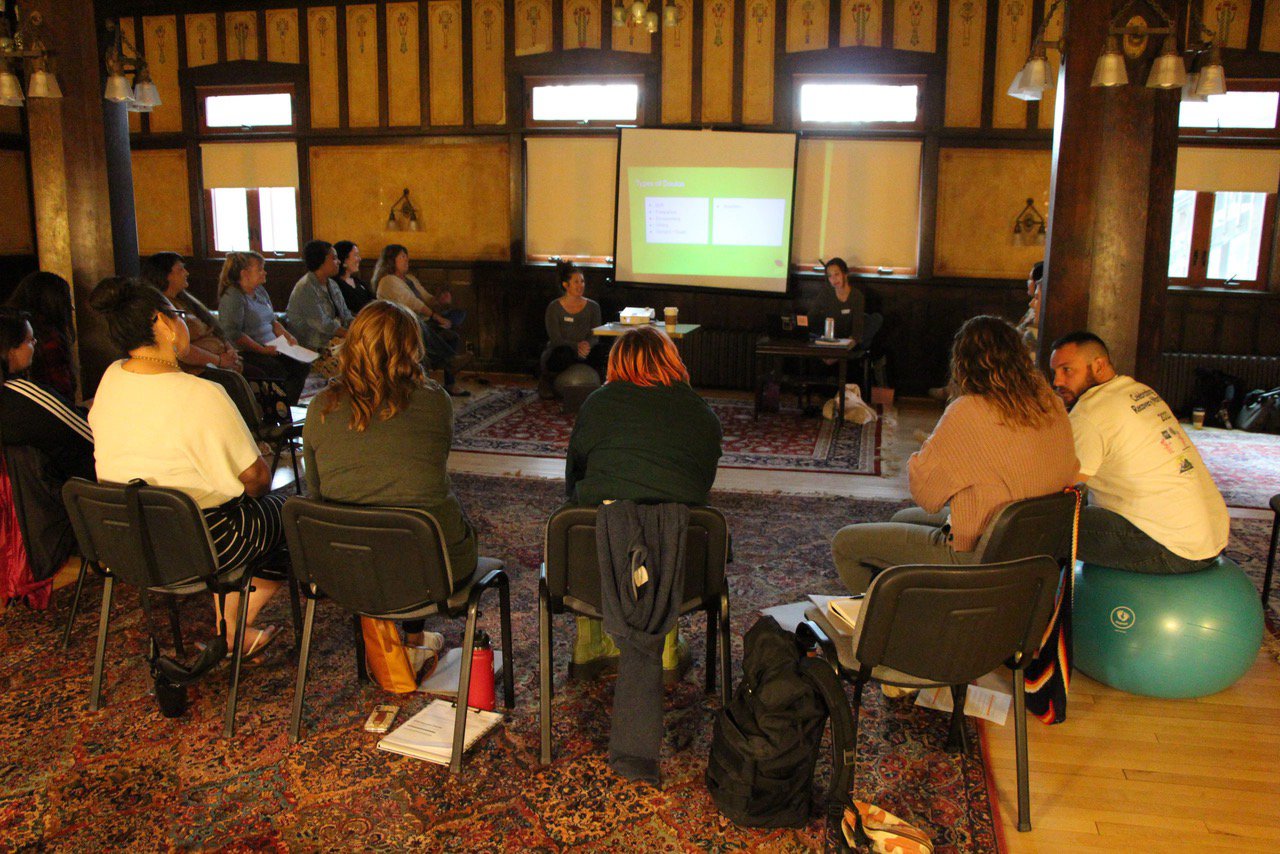
On the day of her delivery, Dobbs was up-front with medical staff about her history of narcotic use, telling them she didn’t want to take pain medications or be sent home with prescription drugs. She waited until she could no longer handle the pain to get an epidural, a numbing injection to counter intense contractions, but said she immediately felt a sense of defeat for accepting medication. LaFountain was there to support her in the hospital room the whole time, bolstering her mood and helping her stay focused.
After her son’s delivery, Dobbs faced another setback. A member of the hospital staff had reported her to child protective services, the state health department’s child welfare agency, to flag the possibility of Dobbs using drugs. Knowing she was in Lewistown, the child protection worker made contact with Solberg, the Meadowlark Initiative coordinator, to see if Dobbs was on her caseload. Solberg advocated for Dobbs and helped her emotionally prepare for the state worker’s visit. Together, they explained that she was working through her treatment plan, maintaining sobriety, and dedicated to caring for her newborn. Eventually, the caseworker found no reason to remove Riyadh from his mother’s care.
“Everything that that CPS lady was going to have me do, I was already doing,” Dobbs said. “She had a long list of [things] like see a therapist, see this, do this, do that. And I had everything already done.”
Months later, Dobbs said, both of those people are still in her corner. She can reach out to LaFountain if she feels challenged in her recovery, and she and Solberg can work through the ups and downs of caring for an infant if issues arise with Riyadh. And, day after day, Dobbs continues to make progress toward her goals of being the best mom she can be. Next year, she’ll have enough time in recovery to follow in Zeigler and LaFountain’s footsteps and start training to become a peer support doula herself.
Reflecting on her time in recovery, Dobbs said, the availability of peer support and community resources seem to have made a critical difference.
“I’m not just saying this just to say it, but the reason why is because of my support group,” Dobbs said. “The reason why I have never [before] recovered or never got sober long enough was because I didn’t have a support group the way I have one now.”
Finding a purpose
On an overcast day in October, the new cohort of recovery doulas-in-training gathered in a warm community room at Boulder Hot Springs. Many said they had been motivated to join the program because of their own experiences as parents with histories of addiction and mental health issues. They talked about having compassion for the people they wanted to serve, and making sure their own experiences don’t crowd out the client’s voice in decision-making about their health and well-being.
LaFountain and Zeigler, both of whom still have a few more requirements to meet until they can complete the course, were there. They and other peer support specialists talked about how meaningful it was for them to use their lived experience to help other people, highlighting another layer to the program: Knowing that they can have a positive influence in someone else’s life helps bolster their own commitment to recovery.
Between assisting with demonstrations and offering lessons to the program’s new members, LaFountain tried to summarize the importance of his new career. In some ways, he said, it feels as if everything he’s been through has prepared him to help other people overcome their addictions and start down the road to being better parents.
“I know that I have a purpose,” he said with tears in his eyes.
Over lunch, Doyle and Ponich lead the celebrations of the program’s first graduates, handing out certificates and scrubs with “recovery doula” scripted on the back. The lunch hall rang with the sound of the new cohort clapping.






